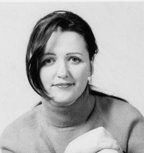In the past year, every month there are more and more articles talking about the fact that women are now taking bioidentical hormone replacement therapy (BHRT). What are bioidentical hormones, and how can they help women in menopause?
Bioidentical hormones are molecules that are the same as the endogenous hormones made in a person's body. They are not exactly the same, but the molecules are the same, and they are derived in a lab from plants. These bio-identical hormones are often referred to as natural. BHRT differs from conventional hormone replacement therapy, which by definition uses animal or synthetic hormones and whose structures differ from the hormones produced in a human body.
Women can take bioidentical hormones in pill form, as drops under the tongue, or they may use a topical cream. The various approaches to the dosing and blood levels are all clumped together as "natural," but thanks to one researcher and author, the following question was rasied.
How can bioidentical hormones really be natural if they do not mimic a rhythm that your body can recognize as natural in you?
T.S. Wiley, who teaches accredited seminars on the natural history of endocrinology, was seeking natural hormones with natural replacement - real HRT. She believes that gels, pills and drops do not pulse in our bodies, like endogenous hormones pulse. A young and healthy oman's endogenous hormones go up and down and trigger different genes; genes that not only grow cells, but also stop cells from growing, and then tell cells to die.
So she looked closely at the various hormone states women have in life; 1) pregnant 2) young and cycling, 3) breastfeeding and 4) hormones that are declining. Doesn't it make sense that number 1 -- young and cycling - seems to replicate that state of hormonal health the best? Why? Because the other two templates are too hard to recreate physically and experimentally.
What this means is that women cycle up to a peak of estrogen and then the body lets it fall and then brings it down again for a second smaller peak. Progesterone peaks on day 21. Healthy women have a period that lasts for five days with a heavier flow on day two and three.
There is rhythm to how hormones work, with a beat like music. Pills, gels, drops and static dosing do not honor the music. Women who have enough hormones say they feel good, and some feel better than they did their entire lives.
There are tens of thousands of women who are getting excellent results from rhythmically dosed bioidentical hormone replacement therapy. They have provided testimonials of their menopause experiences on the Wiley website.
Kristin Gabriel is the marketing communications director for T.S. Wiley, a medical writer and researcher in chronobiology, environmental endocrinology and circadian rhythmicity. Wiley is the author of "Sex, Lies & Menopause," and the also the developer of The Wiley Protocol, bioidentical hormone replacement therapy.



No comments:
Post a Comment